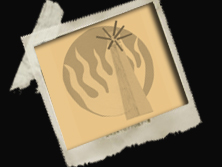
Links
Aspects of the perennial philosophy may be found in every major religion, mythological and spiritual tradition. It is the common heritage of all humanity.

Aspects of the perennial philosophy may be found in every major religion, mythological and spiritual tradition. It is the common heritage of all humanity.

A belief which has many names: Perennial Philosophy, Primordial Tradition, Traditionalism and Ancient Wisdom. Simply, Perennialism, under what ever name proposes that there is an ancient tradition of ideas which can be discovered in the world's religions, mythology and folklore. Here is a good introductory website which gives an idea of the pervasiveness of the movement. http://websyte.com/alan/peren.htm
A more in depth historical discussion of perennialism may be found here:
http://www.us.oup.com
Another perspective comes from the teachings of Rene Guenon and Frithjof Schuon. http://www.religioperennis.org/index.html
![]()
Psychiatrist, Carl Jung argued for a medieval European movement, sometimes called Spiritual Alchemy, to distinguish it from the dubious art of turning base metals into gold. Spiritual Alchemy concerns the transformation of the baser self into the spiritual self.
The best and most popular Alchemy website: http://www.levity.com/alchemy/home.html
![]()
Sometimes called Christian New Thought, or just New Thought Movement. Other terms associated with Christian New Though are "Mental Science" and "Metaphysical Religion." Its main idea is the power of the mind to heal and find prosperity and happiness. It also has it own branches, including: Unity School of Christianity, Science of Mind.
A good umbrella web site to Christian New though organizations is the International New Thought Alliance: http://newthoughtalliance.org/pages/about.htm
Unity School of Christianity http://www.unityworldhq.org/
![]()
Hermetic philosophy arose out of the blending together of Greek and Egyptian religion during the time of the Ptolemaic Dynasty in Egypt: about 320BCE until the Death of Cleopatra VIII in the first century. It continued its development through the Roman and Islamic periods and was very influential upon Greek and Islam Cultures. Sometimes it is called the Western Esoteric Tradition. The tradition reappeared in modern times through Marcilo Ficino of Florence, who translated some ancient texts known is the Corpus Hermeticum attributed to Hermes Trismegistus.
A good balanced but brief description of Hermeticism can be found here: http://www.ucalgary.ca/applied_history/tutor/endmiddle/bluedot/hermetic.html
The world's largest collection of Hermetic literature is at the Bibliotheca Philosophica Hermetica in Amsterdam. Here is its website: http://www.ritmanlibrary.nl/index.html
![]()
The most popular form of Hindu perennialism is to be found in the writings of Ananda Coormaraswamy, who was born in Hindu tradition yet deeply knowledable of the Western. His writings bridge Eastern and Western Though; Vedanta with Platonism.
![]()
Under construction.
![]()
Under construction.
![]()
Under construction.
![]()